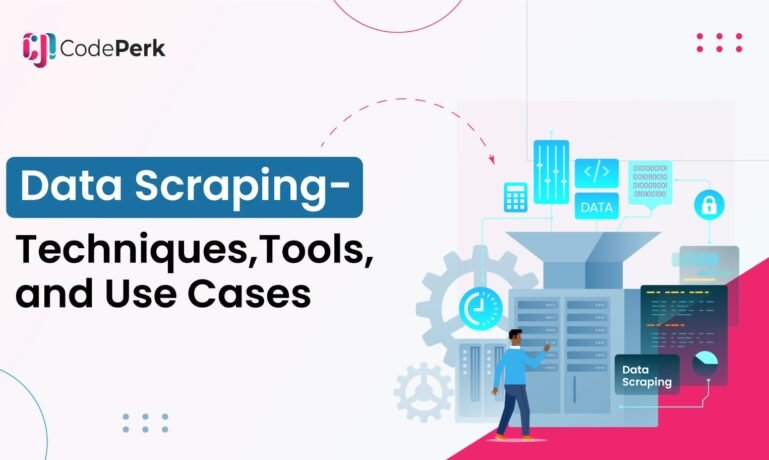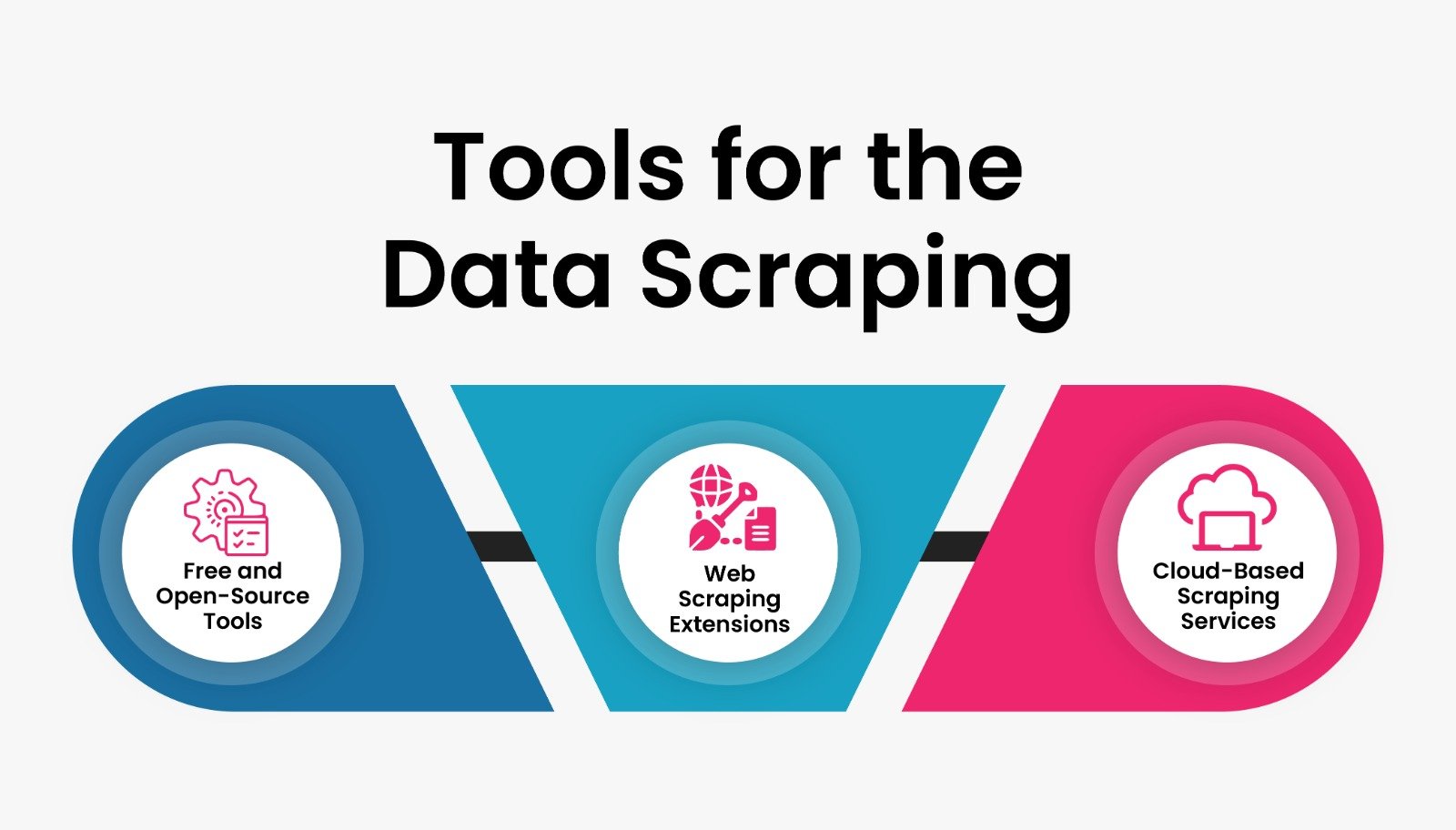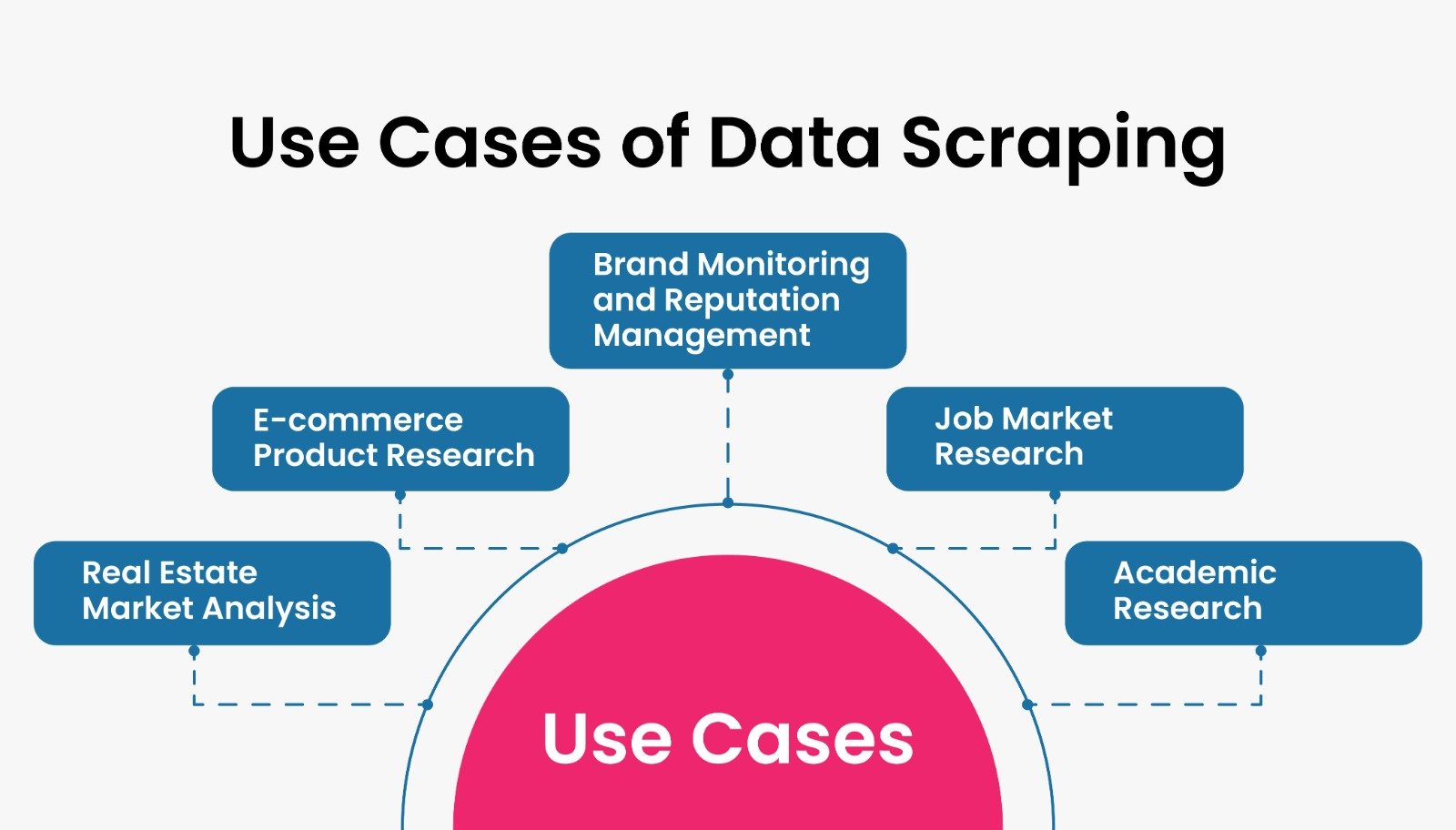
What Is Data Scraping – Techniques, Tools, and Use Cases
Imagine you’re a seasoned journalist on the hunt for a groundbreaking story. You have a hunch, a whisper of a trend, but the data to support it is scattered across dozens of obscure websites. Manually collecting it would take months, burying your story before it even starts. That’s where web scraping services come in, your secret weapon in the fight against information overload.
Data scraping, also known as web data scraping, is the art of extracting valuable information from websites and transforming it into a structured format. It’s like sifting through a mountain of sand to find the glittering gold nuggets of data. But instead of wielding a shovel, you wield the power of web scraping services – companies that specialize in efficiently and ethically extracting the data you need.
This blog post dives deep into the world of data scraping, exploring the techniques you can use, the tools at your disposal, and the exciting use cases that go beyond the typical. We’ll also unveil some lesser-known aspects of data scraping, like ethical considerations and legal boundaries.
So, whether you’re a data enthusiast or a curious entrepreneur, buckle up and get ready to unearth the hidden treasures of the web.
Techniques for Extracting the Web’s Riches

Data scraping isn’t magic. It’s a systematic process that involves a few key techniques:
- HTML Parsing: Websites are built using HTML, a language that defines the structure and content of a page. Data scrapers use libraries and tools to parse this HTML code, identifying the specific elements containing the desired data.
- Regular Expressions: Regular expressions (regex) are like magic spells for data scrapers. These powerful patterns help extract specific text formats like dates, email addresses, or product prices from a webpage.
- Web Automation: Sometimes, websites load content dynamically using JavaScript. Web scraping tools can leverage headless browsers or browser automation frameworks to mimic user interaction and access the underlying data.
- APIs (Application Programming Interfaces): While scraping might seem like a brute-force approach, many websites offer APIs – a structured way to access their data. If available, using an API is generally preferred as it’s more efficient and reliable.
Tools for the Data Scraping Trade

The data scraping landscape is teeming with tools to suit every skill level. Here are a few popular options:
- Free and Open-Source Tools: For the adventurous, libraries like Beautiful Soup (Python) and Scrapy (Python) offer a powerful and customizable scraping experience.
- Web Scraping Extensions: Browser extensions like Octoparse and Web Scraper simplify the process for beginners by providing a user-friendly interface for selecting and extracting data.
- Cloud-Based Scraping Services: For large-scale scraping needs, cloud-based services like Apify and Scrapinghub offer robust infrastructure and features like data rotation and proxy management.
Remember: Choosing the right tool depends on your technical expertise, the complexity of the website, and the volume of data you need.
Beyond the Usual Suspects: Unveiling Untapped Use Cases of Data Scraping

Data scraping isn’t just about price comparison websites or social media listening. Here are some unconventional ways businesses are leveraging its power:
- Real Estate Market Analysis: Scraping real estate listing websites can provide valuable insights into market trends, rental yields, and competitor pricing.
- E-commerce Product Research: By scraping competitor product listings, businesses can gather data on features, pricing strategies, and customer reviews to inform their product development.
- Brand Monitoring and Reputation Management: Scraping social media platforms and online reviews can help businesses track brand sentiment, identify areas for improvement, and address customer concerns proactively.
- Job Market Research: Scraping job boards allows companies to identify in-demand skills, track salary trends, and source potential candidates more efficiently.
- Academic Research: Data scraping can be a valuable tool for researchers who need to collect large datasets from online sources, such as scientific publications or government websites.
These are just a few examples, and the possibilities are truly endless. As data becomes the lifeblood of modern businesses, data scraping will continue to evolve and empower companies to make data-driven decisions across all aspects of their operations.
The Ethical Considerations of Data Scraping
With great power comes great responsibility. Data scraping walks a fine line between efficiency and ethical considerations. Here’s what you need to keep in mind:
- Avoiding Privacy Violations: Remember to scrape personal data like names, email addresses, or phone numbers. If such data is necessary, ensure you have explicit consent or are operating within legal boundaries (e.g., publicly available information).
- Scraping Responsibly: Don’t overload a website with requests. Implement mechanisms like delays and throttling to distribute your scraping activity and avoid overloading the server.
- Transparency is Key: If you’re using scraped data for commercial purposes, be transparent about your practices. This builds trust and avoids any potential accusations of data misuse.
- Respecting IP Rights: Be cautious about scraping copyrighted content like articles or images. Consider reaching out to the website owner or using data available through APIs or legal means.
Remember: Ethical data scraping is about striking a balance between efficiency and respecting the rights of both website owners and individuals.
The Legal Landscape of Data Scraping: Where Does One Stand?
The legal landscape of data scraping can be complex and vary depending on your location. Here are some general guidelines to keep in mind:
- Public vs. Private Data: Scraping publicly available data from websites is generally considered legal. However, scraping private data behind login walls or bypassing security measures is illegal.
- Robots.txt and Terms of Service: As mentioned before, respecting a website’s robots.txt and terms of service is crucial. Scraping content explicitly prohibited by these guidelines can be considered a violation.
- Copyright and Intellectual Property: Scraping copyrighted content without permission can lead to legal repercussions. Be mindful of scraping text-heavy content or creative works.
- Data Protection Regulations: Regulations like GDPR (Europe) and CCPA (California) impose restrictions on how personal data is collected and used. Ensure your scraping practices comply with these regulations if applicable.
It’s important to consult with a legal professional to understand the specific laws and regulations that apply to your data scraping activities.
Conclusion: Data Scraping – A Powerful Tool Used Wisely
Data scraping is a powerful tool that can unlock a wealth of information from the vast ocean of the web. By understanding the techniques, tools, and ethical considerations involved, you can leverage its potential for various purposes. Remember, responsible and ethical scraping practices are essential to ensure this valuable tool continues to empower businesses and researchers alike.
So, are you ready to embark on your data-scraping adventure? Remember, with the right approach and a commitment to ethical practices, data scraping can be a game-changer for your business or research endeavors.
